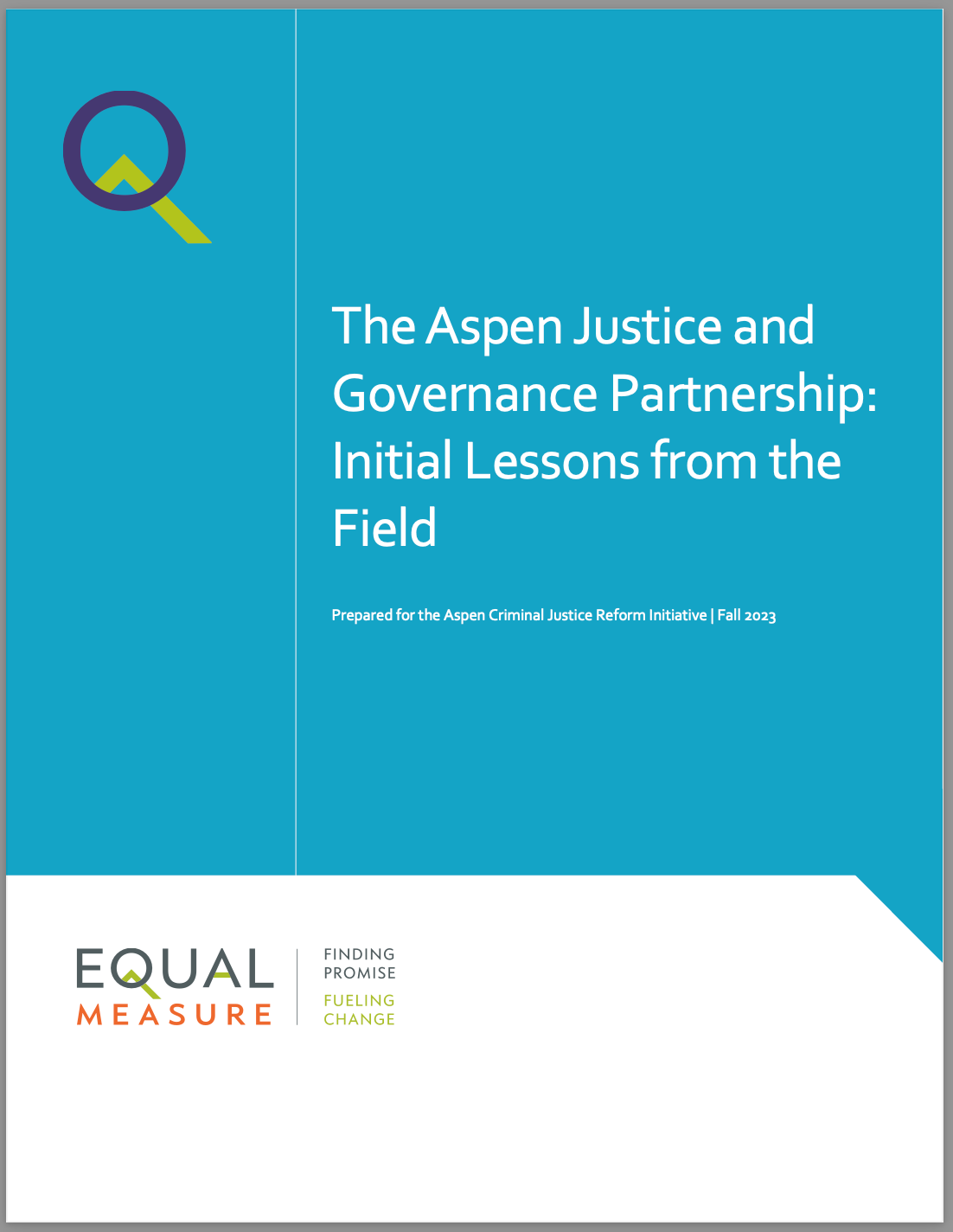It is hard to overstate how much the ground has shifted over the past few months fueling new prospects for transformation of the criminal justice system in the United States. The COVID-19 pandemic has laid bare ongoing and overlapping inequalities that exist in neighborhoods with high rates of incarceration and poverty. Social unrest and mass protests—the largest demonstrations in American history—continue to erupt across the country prompted by viral videos capturing the senseless killings of Black people at the hands of seemingly unaccountable police officers. This has fueled increasing public support for a contemporary movement to reimagine the criminal justice system in a way that also takes into consideration underlying social, economic, education and health disparities and achieves safety and justice through community driven approaches. To that end, Renita Francois writes; “We can no longer strip entire neighborhoods of resources and tell its residents to build a future with broken tools. It’s past time to divest from punitive enforcement and invest in well-being and opportunity. The days of using conditions that the government helped create as an excuse to over police neighborhoods are over. The time for communities to self-determine their own safety is now.”
Our event featured Anna Deavere Smith, actress, playwright, and founding director of the Institute on the Arts and Civic Dialogue at New York University, and Darren Walker, president of the Ford Foundation in conversation with Reverend Vivian Nixon, executive director of College & Community Fellowship and an Aspen Institute Ascend Fellow. There were also remarks by Andrew Plepler, Global head of Environmental, Social & Governance at Bank of America and Dan Porterfield, president and CEO of the Aspen Institute.
This event occurred September 16, 2020.
Presenter Bios:

Anna Deavere Smith is an actress, playwright, teacher, and author. She is credited with having created a new form of theater. Smith’s work combines the journalistic technique of interviewing her subjects with the art of interpreting their words through performance. Smith has created over fifteen one-person shows based on hundreds of interviews. Her most recent play and film, Notes from the Field, looks at the vulnerability of youth, inequality, the criminal justice system, and contemporary activism. President Obama awarded Smith the National Humanities Medal in 2013. Additional honors include the prestigious MacArthur Award, The Dorothy and Lillian Gish Prize for achievement in the arts, the George Polk Career Award in Journalism, the Dean’s Medal from the Stanford University Medical School, two Tony nominations and several honorary degrees. She was runner up for the Pulitzer Prize in Drama. In 2019, she was inducted to the American Academy of Arts and Sciences. She is a University Professor at NYU’s Tisch School of the Arts.

Darren Walker is president of the Ford Foundation, a $13 billion international social justice philanthropy. He is a member of Governor Cuomo’s Reimagining New York Commission and co-chair of NYC Census 2020. He chaired the philanthropy committee that brought a resolution to the city of Detroit’s historic bankruptcy. Under his leadership, the Ford Foundation became the first non-profit in US history to issue a $1 billion designated social bond in US capital markets for proceeds to strengthen and stabilize non-profit organizations in the wake of COVID-19. Before joining Ford, Darren was vice president at Rockefeller Foundation, overseeing global and domestic programs. Darren co-chairs New York City’s Mayoral Advisory Commission on City Art, Monuments, and Markers, and has served on the Independent Commission on New York City Criminal Justice and Incarceration Reform and the UN International Labour Organization Global Commission on the Future of Work. He co-founded both the US Impact Investing Alliance and the Presidents’ Council on Disability Inclusion in Philanthropy.

Vivian Denise Nixon is the Executive Director of College & Community Fellowship (CCF). The organization works to increase women’s access to higher education so they and their families can thrive. CCF’s constituents, primarily women of color, have all had their lives affected by policing, prosecution, and corrections systems. In the late 1990s, Vivian served three years incarcerated at Albion State Correctional Facility in New York. In prison, she became an educator and mentor to women of all ages. She reinvented herself many times before receiving an MFA from Columbia University School of the Arts at age 60. Vivian is a Pen America Justice Writing Fellow. She has been writing opinion, poetry, and fiction about issues of social justice since 1998. Vivian says words taught her to defend herself with wit and wisdom. She finds joy in sharing that wisdom. She currently lives in Harlem, NY and is grateful for every opportunity to write, teach, and speak. She recently co-edited, “What We Know: Solutions from Our Experiences in the Justice System” (The New Press).

Andrew Plepler is Bank of America’s Global head of ESG. In this role, Plepler spearheads the company’s focus on environmental, social and governance issues. In response to the racial wealth gap exacerbated by the coronavirus and the killings of black civilians in numerous communities, Plepler helped develop the company’s $1 billion four-year commitment to advance racial equality and economic opportunity for people and communities of color. Prior to joining Bank of America, Plepler served as senior vice president of Housing and Community Initiatives with the Fannie Mae Foundation. Plepler earned a Bachelor of Arts degree in government from Franklin & Marshall College in Lancaster, Pa., and a Juris Doctorate from the University of Miami School of Law in Coral Gables, Fla. Plepler founded and continues to serve on the board of the Washington, DC-based Urban Alliance Foundation, a nonprofit jobs and mentoring program that works with economically disadvantaged high school students. He is a member of the Council on Criminal Justice and serves on the board of Living Cities Inc.
 Daniel R. Porterfield has served as President and CEO of the Aspen Institute since June 2018. Prior to leading the Aspen Institute, Porterfield served for seven years as the President of Franklin & Marshall College (F&M), a leading national liberal arts college founded by Benjamin Franklin in 1787. Perhaps most important, Porterfield led F&M in the development of the Next Generation Initiative talent strategy, through which the College strengthened its academic excellence and competitiveness by tripling its percentage of incoming low-income students and more than doubling its percentage of domestic students of color. Prior to his appointment at F&M, Porterfield served as Senior Vice President for Strategic Development for his alma mater, Georgetown University. Before coming to Georgetown in 1997, Porterfield served for four years as a senior public affairs official in the US Department of Health and Human Services. He earned B.A. degrees from Georgetown and Oxford—where he was a Rhodes Scholar—and his Ph.D. from The City University of New York Graduate Center, where he was awarded a Mellon Fellowship in the Humanities.
Daniel R. Porterfield has served as President and CEO of the Aspen Institute since June 2018. Prior to leading the Aspen Institute, Porterfield served for seven years as the President of Franklin & Marshall College (F&M), a leading national liberal arts college founded by Benjamin Franklin in 1787. Perhaps most important, Porterfield led F&M in the development of the Next Generation Initiative talent strategy, through which the College strengthened its academic excellence and competitiveness by tripling its percentage of incoming low-income students and more than doubling its percentage of domestic students of color. Prior to his appointment at F&M, Porterfield served as Senior Vice President for Strategic Development for his alma mater, Georgetown University. Before coming to Georgetown in 1997, Porterfield served for four years as a senior public affairs official in the US Department of Health and Human Services. He earned B.A. degrees from Georgetown and Oxford—where he was a Rhodes Scholar—and his Ph.D. from The City University of New York Graduate Center, where he was awarded a Mellon Fellowship in the Humanities.

